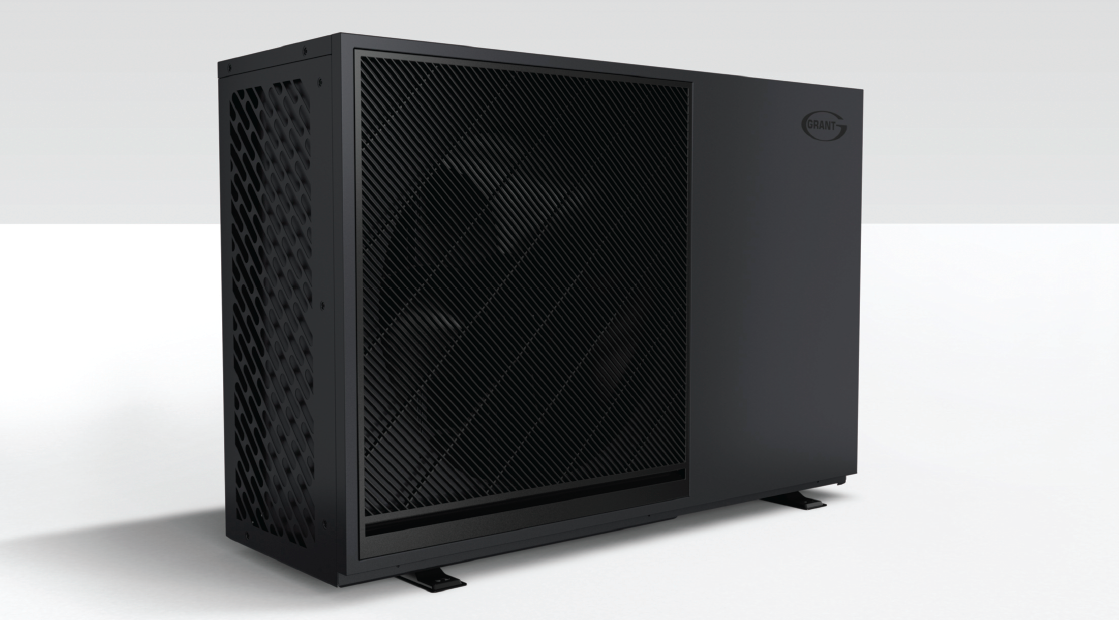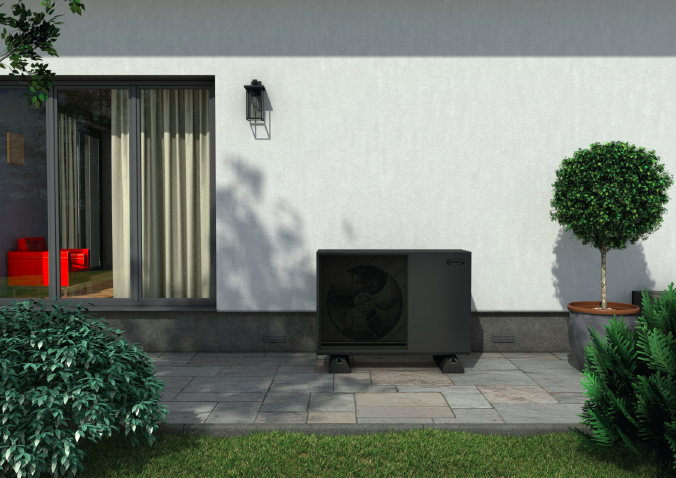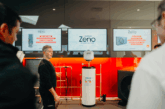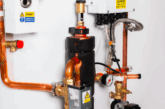
Stuart McWhinnie, Assistant Product Manager at Grant UK, explains how advances in technology and the use of new refrigerants are enhancing performance and making heat pumps more sustainable than ever before.
With ambitious targets for reducing carbon emissions, housebuilders are increasingly considering energy-efficient technologies and solutions, like heat pumps, when constructing new properties. By 2025, the proposed Future Homes Standard will require all new homes to produce 75 to 80% less carbon than those built under current regulations and natural gas boilers will be banned. From then on, it will be a mandatory requirement to fit low-carbon heating systems in new buildings, meaning heat pumps will likely become essential installations.
Heat pumps have long been recognised as an energy-efficient heating solution, but recent advancements in technology, particularly with the introduction of new refrigerants, are driving their sustainability to new heights. This makes them an increasingly attractive option for homeowners looking to lower their carbon footprint. For housebuilders and developers, this shift presents a prime opportunity to stay ahead of the curve. By mastering the installation and maintenance of these advanced systems, professionals can position themselves as leaders in the growing market for eco-friendly, efficient heating solutions.
Refrigerant
One of the latest developments in heat pump technology is the adoption of R290 refrigerant as the heat transfer medium. Also known commercially as propane, R290 has been used in air conditioning and refrigeration systems for several years, but its entry into the UK heat pump market is relatively recent. What makes R290 noteworthy is its very low Global Warming Potential (GWP) of just 3, compared to 2088 for the previously used R410a and 675 for R32, the refrigerant most commonly used in heat pump models. This reduction in GWP allows for a smaller environmental footprint.
One of the potential benefits of heat pumps using the R290 refrigerant, is the possibility of long-term energy benefits for homeowners. R290 has excellent thermodynamic properties which enables it to capture heat energy and release it again in a very effective way within a heat pump, which in turn makes the system itself very efficient – appealing to buyers who are interested in energy efficiency. R290 requires proper handling and safety precautions to be taken during installation and subsequent maintenance operations so units must therefore be installed by someone suitably qualified and trained.
 Grant heat pumps using R290 have been designed to ensure that all reasonable steps have been taken to enable safe operation during use, with significant safety features built-in as standard such as a larger casing to contain R290 in both gas and liquid state and an R290 leak sensor. Grant UK’s Aerona 290 heat pump range, launched in October 2024, takes full advantage of the energy efficiency and low environmental impact of R290 refrigerant without sacrificing performance. Available alongside Grant’s AeronaÑ models, the 4kW, 6.5kW and 9kW Aerona 290 units are available now, with larger outputs of 12kW and 15.5kW coming in early 2025. These units have earned A+++ energy efficiency ratings (at 35°C flow temperature) and have been tested to perform in extreme temperatures ranging from -25°C to 35°C, making them suitable for homes in a variety of climates.
Grant heat pumps using R290 have been designed to ensure that all reasonable steps have been taken to enable safe operation during use, with significant safety features built-in as standard such as a larger casing to contain R290 in both gas and liquid state and an R290 leak sensor. Grant UK’s Aerona 290 heat pump range, launched in October 2024, takes full advantage of the energy efficiency and low environmental impact of R290 refrigerant without sacrificing performance. Available alongside Grant’s AeronaÑ models, the 4kW, 6.5kW and 9kW Aerona 290 units are available now, with larger outputs of 12kW and 15.5kW coming in early 2025. These units have earned A+++ energy efficiency ratings (at 35°C flow temperature) and have been tested to perform in extreme temperatures ranging from -25°C to 35°C, making them suitable for homes in a variety of climates.
Grant UK has also taken on board research that highlighted homeowners’ concerns about both the look of heat pumps and the potential noise factor. The Aerona 290’s appearance has been developed following in-depth analysis of customer feedback; it has a powder coated black casing for a modern aesthetic that blends well with various types of architecture. It has also been accredited with Quiet Mark certification due to its sound-reducing technology, including acoustic insulation and antivibration feet, making it suitable for both urban and rural developments where noise might be a concern.
System design is paramount when installing a heat pump so Grant UK’s Design Team are on hand to help installers and other customers correctly size their new Aerona 290 system. Onsite technical support from Sales Support Engineers is also available to assist installers during the setting and commissioning phase of an installation.
Once installed, the units can be monitored and managed remotely, giving both installers and their customers ultimate control of their heat pump system and assisting offsite diagnostic support when required. Designed for use with the Aerona Smart Controller, the Aerona 290’s operation can be easily managed through straightforward set-up and commissioning and innovative control thereafter.
Due to rising consumer awareness around sustainability and the regulatory landscape, the housing market is increasingly prioritising energy-efficient solutions. The introduction of R290 refrigerant in heat pumps is a significant leap forward in heat pump technology, making it a standout choice for further reducing the environmental impact of heat pump systems, while also boosting their performance. As the push for greener homes intensifies, keeping pace with trends and incorporating new technologies will both ensure compliance with future building standards while also responding to changing market expectations.








